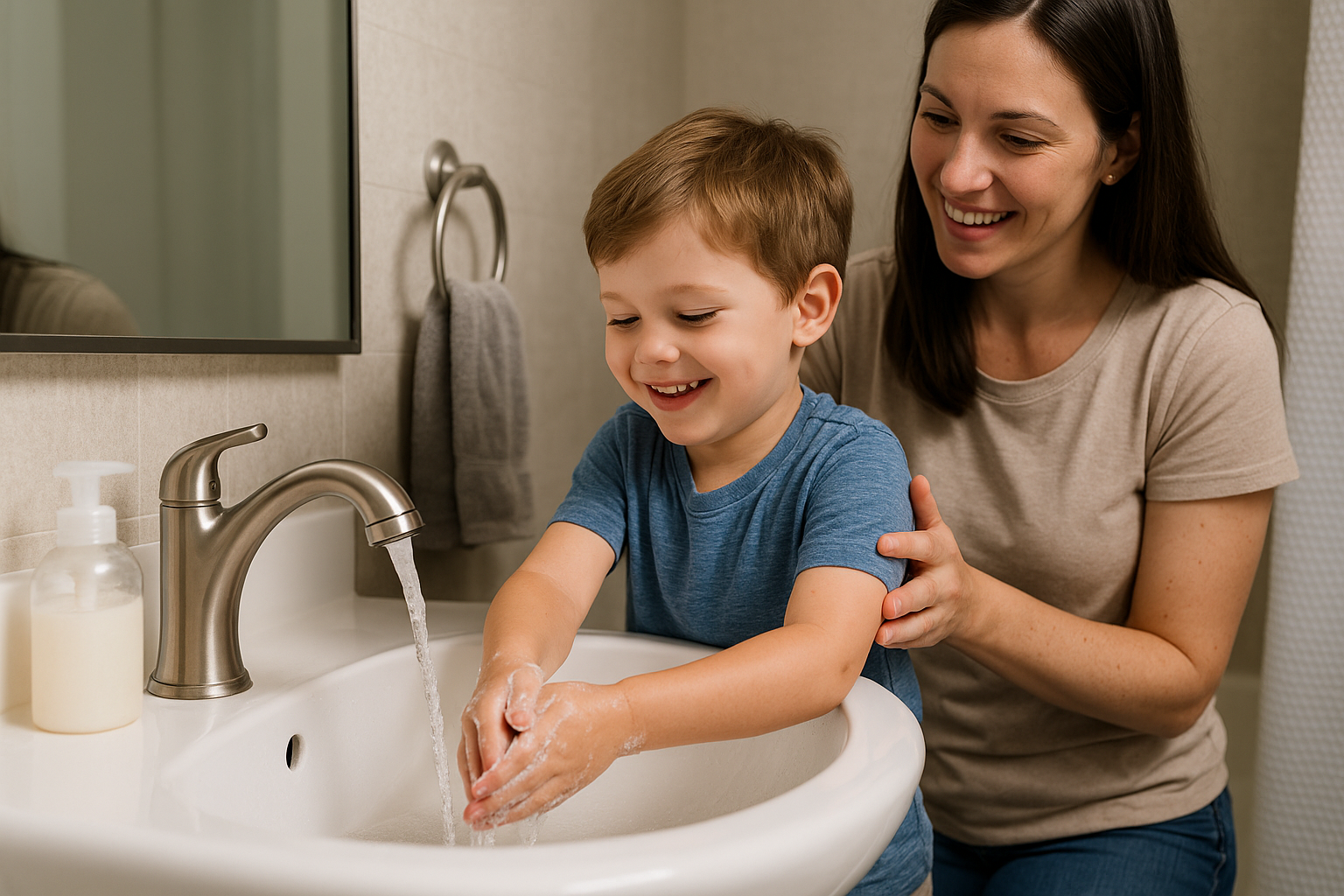
Why Self-Care Matters
Self-care skills—like brushing teeth, dressing, and washing hands—are the building blocks of independence. For children on the autism spectrum, these tasks may feel overwhelming. Differences in motor coordination, sensory processing, or sequencing can make self-care difficult to master.
Parents in Chesterfield often share struggles such as:
- Resistance to brushing teeth or bathing
- Difficulty with buttons, zippers, or shoelaces
- Avoiding hair brushing or haircuts due to sensory discomfort
- Needing constant reminders for daily hygiene
Applied Behavior Analysis (ABA) provides structured, supportive strategies to help children gain self-care independence. By teaching skills step by step and celebrating progress, ABA empowers children and relieves daily stress for families.
How ABA Builds Self-Care Skills
Step 1: Task Analysis
ABA breaks down each skill into smaller steps. For example, “brushing teeth” may include:
- Pick up toothbrush
- Apply toothpaste
- Brush top teeth
- Brush bottom teeth
- Rinse mouth
Children learn one step at a time until they can complete the entire routine.
Step 2: Visual Supports
Picture charts or checklists provide a clear sequence of steps. These are especially helpful during routines like getting dressed or washing hands.
Step 3: Prompting and Fading
Therapists guide children through each step at first—physically, verbally, or with visuals—then gradually fade prompts as independence grows.
Step 4: Positive Reinforcement
Every effort is celebrated. Whether a child puts on socks independently or tolerates shampoo in their hair, reinforcement makes progress motivating.
Step 5: Generalization Across Settings
Skills are practiced not only in therapy but also at home and in the community—ensuring children can brush teeth at bedtime, wash hands at restaurants, or dress for outdoor play in Chesterfield’s parks.
Real-Life Example: Dressing with Confidence
Ethan, a 6-year-old from Chesterfield, struggled with getting dressed each morning. Buttons and zippers frustrated him, leading to meltdowns that delayed school.
His ABA therapist introduced a visual chart showing each step: shirt, pants, socks, shoes. At first, Ethan needed hand-over-hand guidance. But with reinforcement for each success—putting on a sock, pulling up pants—he gained confidence.
Within months, Ethan proudly dressed himself each morning. His parents described mornings as “less stressful and more joyful.”
Key Self-Care Skills ABA Can Support
- Personal Hygiene: Brushing teeth, bathing, washing hands
- Dressing: Choosing clothes, managing fasteners, tying shoes
- Grooming: Brushing hair, tolerating haircuts, trimming nails
- Mealtime Independence: Using utensils, cleaning up, trying new foods
- Toileting: Mastering bathroom routines, handwashing after use
Parent Tips for Supporting Self-Care at Home
1. Start Small and Build Gradually
Focus on one step at a time, like putting toothpaste on a toothbrush, before expecting full independence.
2. Use Routines for Consistency
Keep self-care tasks at the same time each day to build predictability and comfort.
3. Make It Fun
Turn routines into games—like singing a song while washing hands or racing to put on socks.
4. Model Skills
Demonstrate brushing teeth or combing hair so your child sees what to do.
5. Reinforce Success
Praise every effort, even small ones, to encourage motivation and pride.
Chesterfield Opportunities for Practicing Self-Care
Families in Chesterfield have many community spaces where self-care skills can be practiced naturally:
- Chesterfield Family Aquatic Center: Encourages children to practice dressing, showering, and hygiene after swimming.
- Faust Park: Perfect for practicing dressing for outdoor weather and washing hands after play.
- Local libraries: Encourage hygiene skills, such as sanitizing hands before reading.
- Community restaurants: Opportunities for practicing handwashing, utensil use, and cleaning up.
- Sports programs: Reinforce independence by changing into uniforms and managing personal belongings.
Why Self-Care Skills Create Lifelong Benefits
Self-care isn’t just about daily routines—it’s about preparing children for independence.
- At school: Children participate confidently in routines like handwashing or changing for gym.
- At home: Parents feel less stress when children contribute to their own routines.
- In the community: Independence in hygiene and dressing helps children navigate public spaces comfortably.
- For adulthood: Self-care is a foundation for jobs, relationships, and independent living.
Long-Term Benefits for Families
Families in Chesterfield who focus on self-care through ABA often describe dramatic improvements in daily life. Morning and bedtime routines become smoother, stress is reduced, and children gain pride in their abilities.
Over time, parents feel more confident about their child’s future, knowing that independence in self-care opens doors to greater opportunities and autonomy.
FAQ
Q1: What if my child refuses to do self-care tasks?
ABA uses reinforcement and gradual exposure to make tasks feel manageable and rewarding.
Q2: Can nonverbal children learn self-care?
Yes. Visual supports, gestures, and modeling help children succeed regardless of verbal ability.
Q3: What if sensory sensitivities make self-care difficult?
ABA therapists adapt strategies to honor sensory needs—like using soft brushes or tolerating water gradually.
Q4: How long does it take to see progress?
Progress varies, but many families notice improvements within weeks of consistent practice.
Q5: Do therapists teach self-care during sessions or only at home?
Both. Skills are introduced in therapy and practiced at home and in the community for consistency.
